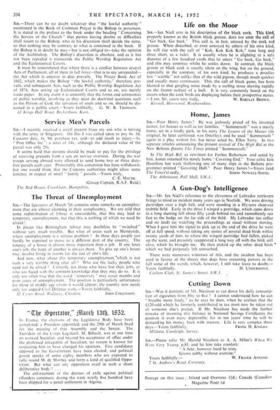SIR, —There can be no doubt whatever that " the lawful
authority " mentioned in the Book of Common Prayer is the Bishop in personal?). It is stated in the preface to the book under the heading " Concerning the Service of the Church " that parties having doubts or difficulties shall resort to the Bishop, who in his discretion shall decide the same, so that nothing may be contrary to what is contained in the book. If the Bishop is in doubt he may—but is not obliged to—take the opinion of the Archbishop. The Bishop's discretion is absolute, and as it has not been repealed it transcends the Public Worship Regulation Act and the Ecclesiastical Courts.
It must be remembered that where there is a conflict between several Acts of Parliament, all of them in full force—that is to say unrepealed- the Act which is anterior in date prevails. The Prayer Book Act of 1662, which makes the Bishop the lawful authority," therefore pre- vails, and subsequent Acts, such as the Public Worship Regulation Act of 1874, Acts setting up Ecclesiastical Courts and so on, are merely waste paper. In any event it is unseemly that the forms and ceremonies of public worship, involving as they must do doctrinal questions such as the Person of God, the salvation of souls and so on, should be dis-










































 Previous page
Previous page